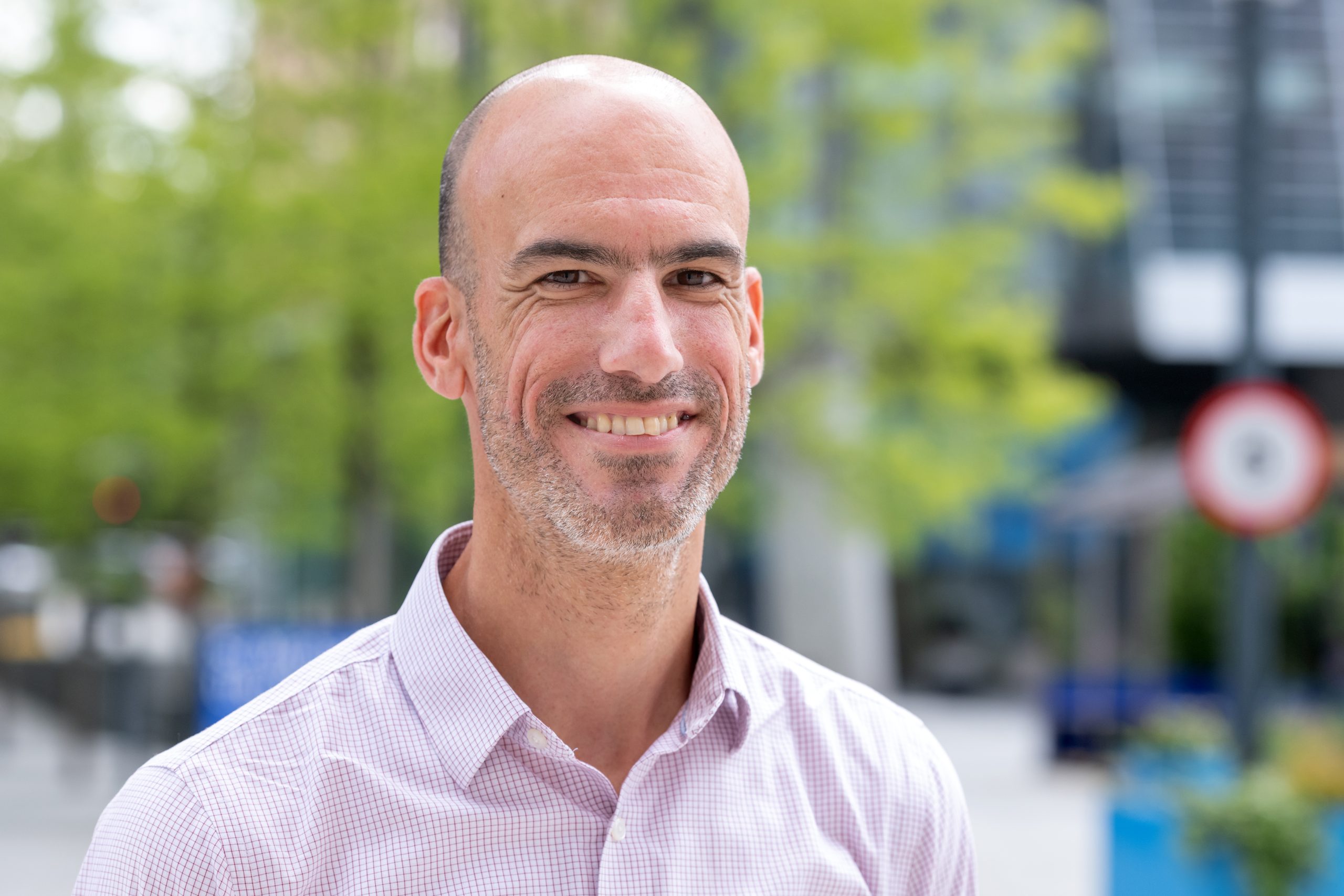As part of our in profile series, we spoke to Dr Alexi Nott, Lecturer in Neurogenomics and LGBTQ+ Champion for our LGBTQ+ Allies Network. He tells us more about his department award in recognition of championing LGBTQ+ awareness and representation.
Introduce yourself – who are you and what do you do?
I’m Alexi Nott and I am a Lecturer in the Department of Brain Sciences and a Group Leader in the UK Dementia Research Institute at Imperial. My lab is based on the White City campus, and we investigate the contribution of epigenetics to dementia.
What is your involvement with the LGBTQ+ Allies Network and how do you hope its work impacts our community?
As a gay scientist I appreciate the need for visibility and support for the LGBTQ+ community in STEM. In 2022 I was suggested as an LGBTQ+ Champion for the department by the EDI committee. Imperial has a great institution-wide LGBTQ+ network through I600. As the department champion, I was hoping to provide a local infrastructure through the initiation of the Brain Sciences LGBTQ+ Allies network. Last year, as a network, we had several social and neuroscience-focused events that we hope appealed to the broader Faculty of Medicine community. If you are interested to participate or contribute, please get in touch!
Tell us about your career so far – when did you join the college, and where were you working/studying before this?
I joined the college to start my first independent position as a Lecturer in the summer of 2020. I was coming from a role as a Project Scientist at the University of California, San Diego (UCSD) with Prof. Chris Glass and this followed a 5-year postdoctoral position at the Massachusetts Institute of Technology (MIT) with Prof Li-Huei Tsai. Before moving to the US, I completed a PhD in molecular biology at University College London (UCL) in the MRC Laboratory for Molecular Cell Biology with Prof. Antonella Riccio. However, my academic journey started with a 4-year integrated master’s in Biochemistry at Bath University. This integrative course structure was relatively new at the time and allowed me to complete two full-time 6-month research internships in the US.
You were awarded a DoBS recognition award for improving the department’s work and championing LGBTQ+ awareness, representation, and community building. What does this mean to you?
I am very proud of what the network has achieved in a short time and that the network has been embraced by the department. A network is just that though, and this would not be possible without the contribution of individuals on the network and participation of people from the department and the broader faculty. So, I feel like this award is a collective recognition of everyone who has contributed to the network since its conception!
Can you explain more about your research interests and what initially sparked your interest in your current field?
During my undergraduate studies in Biochemistry, I was involved in an internship at Duke University on behavioural neuroscience and an internship at Baylor on the genetics of epilepsy. Both research areas piqued my interest, and I was lucky to then be offered a PhD position in neuroepigenetics at UCL that combined both aspects! From then onwards, my research interests followed the theme of neuroepigenetics. As a PhD student, I studied the role of epigenetic regulators in brain development. During my postdoc at MIT I investigated the contribution of an epigenetic factor in a neurodevelopmental condition. Before then moving towards the role of epigenetics in ageing-associated disorders at UCSD. My current research is now focused on the insights that epigenetics provides into the genetic predisposition of dementia and how cell type gene regulatory mechanisms are dysregulated during disease.
What aspect of your role(s) are you most excited about?
The science has always been a major source of excitement for me. Having the opportunity to explore the unknown and to see how new areas of research open up that you may not have considered. Upon starting my group, a major motivator has been the individuals in my team. Everyone in our group is critical in moving the science forward and there is a great sense of fulfilment and pride to see team members develop and grow during their time at Imperial.
When you are not working, what are your main passions and hobbies?
I like to stay active as much as possible as I think this is important for mental health. As part of this I like to cycle, and I commute and try to travel as much as possible by bike. It is also a great way to explore different areas of a city! I have also become a bit of a plant Dad. I am not sure how great I am at looking after plants, but it does bring me joy and they are generally quite forgiving!
If you were stranded on a desert island but allowed one luxury item, what would it be?
A luxury item I have always wanted is prescription goggles for swimming in the sea and to be able to see the fish. A desert island seems like the perfect place to test these out!
